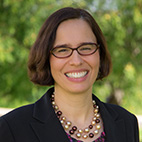If you want to go far, go together
Anne N. Connor, Director of Community Grants, Methodist Healthcare Ministries of South Texas, Inc.
"If you want to go fast, go alone; if you want to go far, go together." In this African proverb, the concept of "going together," and the investment of time it requires, applies to an asset-based approach to collective impact in creating community health. The Communities Creating Health feature in SSIR poses the question: "What would happen if the design, implementation, and evaluation of health interventions became something we do with communities rather than to them?"
When Methodist Healthcare Ministries of South Texas, Inc. set out to launch a collective impact initiative to improve community health in the Rio Grande Valley of Texas, we added a new element to this proven framework. We knew that too many funders had entered a high-need service area with the message, "We know what's wrong with this community, and we're here to help you fix it." Instead, we preceded the collective impact project with a year of Asset Based Community Development (ABCD), a process of building relationships and identifying existing assets within the community. This changed the message to, "Your community has a lot of strengths, and we're here to help you leverage those." That's a very different conversation.
The ABCD project was conducted by Methodist Healthcare Ministries' Wesley Nurses, a group of 80 church-based Registered Nurses throughout our 74-county service area who provide community health and wellness services. The nurses met with hundreds of community agencies and individual community members to identify assets and build relationships.
Building on this approach, Methodist Healthcare Ministries was able to convene a core group of health care providers and cross-sector community leaders ("grass tops") to identify a common agenda for community health improvement (with a focus on diabetes). Methodist Healthcare Ministries' commitment to the collective impact framework included a one-year consulting contract with FSG, a well-known expert on collective impact implementation. The core group was expanded to a steering committee representing more than 40 organizations for a deeper dive into the shared agenda.
A major milestone in the steering committee's work was a written agenda called Unidos Contra Diabetes. The steering committee found that, while most providers in the community were focusing their resources on diabetes disease management, the community would prefer to be focusing on diabetes prevention. This is a huge shift, especially in terms of payment models, but the community committed to this agenda. The motivation is strong, as most households near the Texas border have had at least one family member with diabetes and have experienced the tragic complications.
The collective impact project has expanded the community voice even further, and now includes several working groups and one planned task force. Community members and leaders are participating in determining how their existing assets can be coordinated to help prevent diabetes. The measurement task force is identifying metrics that can be used to track project success.
The work of the measurement task force is informed by a related effort, the Sí Texas Project, which is funded by Methodist Healthcare Ministries, the Social Innovation Fund, and local funders. Sí Texas is short for "Social Innovation for a Healthy South Texas," and is focused on integrated behavioral health models which address diabetes disease management (rather than prevention) as part of a holistic mind-body-spirit approach. While Unidos Contra Diabetes covers four counties in the Rio Grande Valley, Sí Texas covers 12 counties ranging from the Coastal Bend to Laredo, and includes the Unidos Contra Diabetes service area.
In keeping with Methodist Healthcare Ministries' commitment to evaluating projects with communities, Sí Texas engaged in a consensus-building process led by its contracted evaluator, Health Resources in Action (HRiA), to select the shared metrics all the subgrantees and their partners will use. (Shared metrics are of course another element of the collective impact framework, along with a shared agenda). As much as possible, the Unidos Contra Diabetes task force will align any diabetes management metrics that it tracks with those used by Sí Texas.
In addition, Methodist Healthcare Ministries has committed to engaging in a series of focus groups and community meetings, with a focus on the patient voice, to help identify how best to share and distribute findings of both the Sí Texas Project and the Unidos Contra Diabetes project. The series will convene patients and key stakeholders across a 17-county area to develop a coordinated regional approach to inform patient-centered research and evaluation among university systems, academic institutions, managed care organizations (MCOs), and public health systems. Methodist Healthcare Ministries will inventory how research findings/evaluation results are, or are not, shared with patients. The series will develop an actionable engagement strategy between MCOs and stakeholders to share and disseminate research findings/evaluation. This will help develop a framework guiding patient participation producing increased levels of trust between patients and academic/public health systems.
The ultimate outcome is that the patient voice is heard across systems, throughout all phases of research, resulting in dissemination practices and strategies that are highly responsive, culturally and linguistically appropriate for patients in South Texas. Across all the efforts described above, Methodist Healthcare Ministries is walking together with the communities it serves, toward the goal not only of improved community health, but of greater local ownership of healthy communities.

